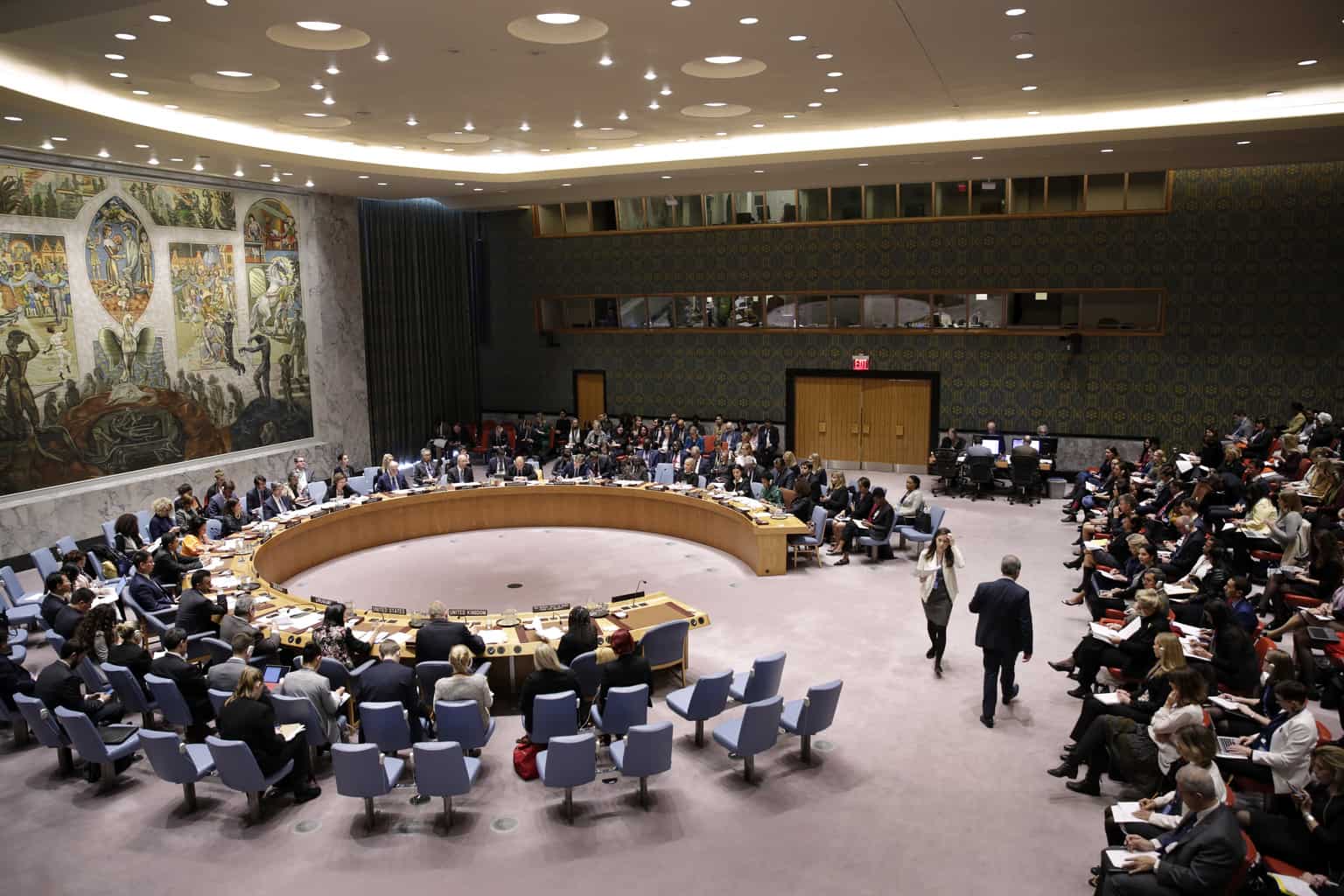By Gabrielle Belli
To mark the 17th anniversary of the women, peace and security agenda, Member States once again gathered in the UN Security Council for the Open Debate on WPS. While implementation of the agenda needs to be year-round, the Open Debate provides a significant opportunity for Member States, observers and senior UN Leadership to voice their commitments, activities and priorities towards that end.
Ahead of the debate, we work to influence the statements that will be delivered, for example through the Open Letter to Permanent Representatives to the UN expressing civil society concerns and recommendations. This year the letter was signed by 391 organizations from across 98 countries, calling on Member States to prioritize gender equality and women’s rights and to increase their support for women civil society organizations and women human rights defenders. In light of ongoing concerns about cuts to gender functions in peacekeeping missions, we also called on Member States to make strong statements of support for maintaining and enhancing these functions.
Here is a snapshot of how those issues were taken up in the Council chamber, as well as some key quotes from speakers.
Gender equality was brought up in different contexts, with 118 mentions from 59 different speakers. Civil society was mentioned 98 times by 52 different speakers, and 36 of those mentions were specifically to women’s organizations. One trend we noticed was Member States providing examples of local, regional, national and international mechanisms and processes they partake in to support and integrate civil society.
- “Through its bodies and agencies the Government of Mexico promotes equitable representation of women in all sectors and levels. The participation and the involvement of a pluralistic civil society, including feminist organizations and defenders of women’s rights, are essential to guarantee the fulfilment of those commitments and advance our agenda on the progress and empowerment of women and girls.” – Mexico
Additionally, UN Women, UK, Canada, Spain, Lithuania, Slovakia, Kazakhstan expressed the importance of civil society representatives briefing the UN Security Council.
Women’s Human Rights Defenders were mentioned 4 times, once each by UN Women, Norway, Hungary and Armenia.
- “Women’s human rights defenders are under tremendous attack and we do not have enough to protect and support them. They need all our support and the support of the Council. The least we can do is to protect their space to speak out and raise their voices.” – UN Women
- “Women human rights defenders often remain unprotected, abuses underreported, and our response inadequate.” – Norway
- “Hungary is deeply concerned about the growing threat and use of violence against women human rights defenders. We should step up our efforts in combating that dangerous phenomenon more effectively, and develop a horizontal and specialized response.” – Hungary
The importance of gender in peacekeeping missions was mentioned by 35 different speakers and 20 of those specifically discussed maintaining gender expertise. Several others went a step further to express concerns about the fate of gender functions due to peacekeeping budget cuts.
- “This is a time when we need more gender expertise and capacity in our missions and country teams, rather than less” – UN Women
- “The deployment of senior gender advisers and senior women’s protection advisers is therefore critical so as to ensure that missions have sufficient gender expertise, authority and capacity to address those objectives.” – Ukraine
- “The gender perspective must be part of the entire peacekeeping planning process, as well as at the time of review and when it comes to reducing the number of deployed personnel. On this point, the recent cuts to the gender and human rights components of various mandates of certain peace missions are of concern.” – Uruguay
- “Peacekeeping missions need to have the necessary human-rights and gender expertise. Having gender expertise integrated into all mission components is not only nice to have, but is at the core of mandate-implementation and lasting peace and security.” – Germany
Commitments made in October need to be acted on and implemented across all country and crisis situations. We work to hold Member States and actors across the UN system accountable for this by conducting ongoing monitoring and analysis of the Security Council decision making processes. For updates on our advocacy, you can explore our website, sign-up for our mailing list, and follow us on Facebook and Twitter.
A more in-depth analysis of the statements made during the WPS open debate by Women’s International League for Peace and Freedom is available here.
